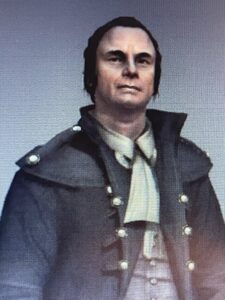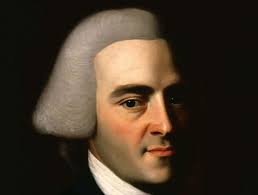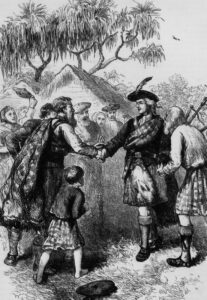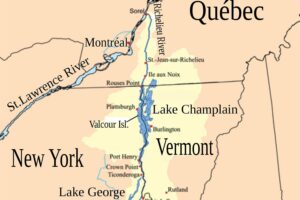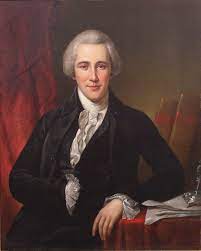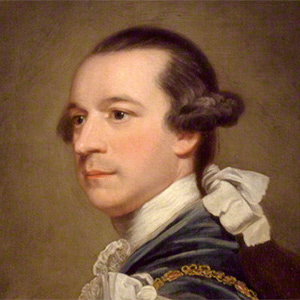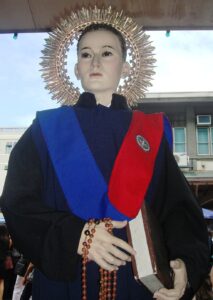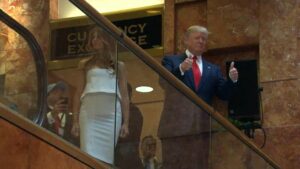Americanism Redux
November 9, your today, on the journey to the American Founding, 250 years ago, in 1773
Exhausting, that’s what it is. The things I need to do. The things I have to do. The things I can’t avoid one minute more and so will do right now. It’s a crush, all of it, pressing in on me. Do them without illusion because there’s more on the way.
Yes, that’s right, more on the way.
* * * * * * *
The people of Boston are in a frenzy. You feel it in the air, hear it in their voices. The worst part about it is the realization that this isn’t going away. Frenzy in the future.
Some of it is expected, like a college football game between rival schools. Guy Fawkes, or Pope’s, Day was four days ago, the annual celebration of the failed plot to blow up Parliament in 1605. It’s a Boston tradition to have two rival groups organize for a public fight—North Enders and South Enders—with the winner, whatever that means, taking a sort of Guy Fawkes prize of bragging rights. It’s Michigan vs Ohio State two-and-a-half centuries ago, but with a lot more injuries and, pound for pound, probably a lot more ale, too.
(A Fawkes mask, usually a bad sign in modern times)
That’s the scheduled fun. People are frenzied because much more is happening than an annual rivalry. To some and for some, their liberty is on the line.
Less than a week ago Samuel Adams called a public meeting to air out, blurt out, and fall out grievances over the British Parliament’s Tea Act and Governing Act passed on behalf of the East India Company. Everyone here knew eight ships crammed with crates of tea were somewhere on the North Atlantic Ocean, heading west to Boston and three other colonial ports. Adams led the public meeting, ushering speakers on and off, watching the crowd’s reaction, and at the best and right moment calling for eight resolutions (already written, and similar to the recent Philadelphia Resolutions) to be shared aloud and voted on by the crowd. Don’t misinterpret the theater-like feel—this is real life and not a game, though a significant part of the Guy Fawkes/Pope’s Day crowd overlapped with the Adams crowd.
(21st century depiction of Samuel Adams)
250 years ago today, however, only days after the Pope’s Day crowd and Adams’s public meeting, another public anti-tea meeting occurs. The crowd is larger, louder, more jacked up than before. They shout their approval when the meeting’s host, John Hancock, states that those who support the two Parliamentary acts and the eight tea-filled ships are enemies to their country. Not misguided, not mistaken, not misunderstood but…ENEMIES. Strong word, that, one hard to cover up with whitewash or clean up with soft-soap.
(John Hancock, the second meeting’s speaker)
Coming together so quickly in succession, the three events seem parts of a whole and continuous thing, which they mostly are. Succession has produced momentum and momentum eats from a bucket, grows by the hour, and glares up at the sky. Something alive is in the air.
* * * * * * *
Cassius, an author’s false name, writes “By Order of the Legion’s Committee” that William Kelly, affiliated with the East India Company, had announced his interest in distributing the tea via the port of New York City. Kelly, writes Cassius, has asserted that the local resistance to the Tea and Governing Acts will not, repeat not, reach the intensity seen in the 1765 protests against the Stamp Act. Why? Kelly’s answer is that, among other things, the current royal governor of New York, William Tryon, is a “military man” and will lash back at any colonial resistance and protests. The governor, Kelly adds, can be expected to be strong and tough. For this reason, Cassius concludes in his public document, Kelly is an “enemy of the country” and anyone who assists him will have the same vile label attached.
So there’s one name nailed to the board: William Kelly, enemy of the country.
From Boston to New York City, raw emotions are taking flight.
(William Tryon, modern depiction)
* * * * * * *
Hundreds of people are in various states of stability and instability, stretching in loose lines and offshoots for twenty, fifty, and eighty miles north of New York City. They are from Scotland, their arrival dates scattered from the summer up to only a few days ago. Many are from Glengary, Glenmorison, Urquhart, and Strathglass counties in Scotland. The Donald clan features prominently among them. They’re traveling up the Hudson River valley to live on a 50,000-acre tract called Kingsborough Patent, owned by the deceased Sir William Johnson. The latest group has 280 people in it; 25 children had died of smallpox on the ocean journey. Their grief is deep, though it sits within a culture that is cohesive and confident as well as fatalistic and resilient. One of the Scots writes, “We have influence over people though at a distance that may be of consequence in Subsequent years.” The furor over tea isn’t part of their lives just yet. They’re looking at trees, creeks, and soil. They don’t see the eagles and hawks overhead.
(Scottish immigrants)
* * * * * * *
Slightly farther north of this immigrant stream of Scots is Fort Ticonderoga, a British fort that is more ancient ruins than military installation. Walls are a shambles, weeds and brush grow inside the fort, roofs leak from disrepair. Redcoat Captain William Delaplace of the 26th Regiment of Foot is in command—can you be in command of a junkpile?—and twenty soldiers are with him. This far north the chill of autumn daily becomes the cold of winter. The air tells you that truth. So do the bare hardwood trees and the dark swaying pines against an angry gray sky.
Delaplace and his twenty Redcoats are on type of war-highway. The fort belongs to a river-land route used for the past several decades, north-to-south and south-to-north, in the wars between England, France, their colonists, and their Native allies. Ghosts drift above the rubble.
Today, the twenty-one Redcoats simply want to get enough firewood for the coming week, patch the holes in the roof to keep the barracks more dry than wet, and scrounge from their meager food supply for the next meal ahead.
With luck, someone may spice up a mug of tea with a splash of rum. Keeps off the northern cold before ice forms on the water.
(the corridor of war)
* * * * * * *
William Bradford, a recent college graduate in Philadelphia, has decided on his future. He’s spending time each day studying Christian theology “tho at present I have no expectations of a change in (my) public character.” He does think that a deeper knowledge of Christian principles will help him defend his spiritual beliefs against those who condemn or criticize Christianity. Bradford is also taking time each day to study law, his career of choice, especially “Blackstone on the Laws of England which I am most pleased with and find but little of that disagreeable dryness I was taught to expect.” He’s also coping with the inconvenience of a trend of counterfeit money in Philadelphia, making it difficult to buy and sell items. And to a friend who, like him, loves to read, Bradford recommends subscribing to the “Monthly Review” printed in London. It includes not only critical reviews but also excerpts from books. An observant reader like Bradford uses Monthly Review to filter the buyable books from the rest.
Bradford is a young man putting his life in order at a time when people have begun to name enemies.
(William Bradford)
* * * * * * *
Today, Reverend Ebenezer Parkman of Westborough, colony of Massachusetts, would have relished a parental version of the Monthly Review. He’s worrying about people younger than Bradford, such as teenagers and adolescents, and specifically his own children. Parkman’s children are reading “The Life of Patty Saunders.” Parkman fears that the book, while entertaining, does little to strengthen spiritual faith and self-control, and also promotes a view of marriage that elevates emotion and passion above everything else which, in Parkman’s experience, is ill-advised. The future Parkman wants for his children is not the future he sees offered in this book. Parkman watches closely for ways in which he can reinforce his ideas of their best life. To him, this book makes his task all the harder. He’s a parent who assumes that what young daughters and sons read will shape how they live their lives later on.
Does the Monthly Review recommend any good books about tea and political philosophy?
(modern edition of the book that worries Parkman)
Also
In London, theater-goers are ready for tonight’s latest show, “The Fair Quaker; Or, The Humours Of The Navy.” It’s a comedy-play written more than sixty years ago and performed dozens of times since. The buzz around the theater community is that England’s most famous actor, David Garrick, will be in the lead role for tonight. His name isn’t shown on the program, however, and a few ticketholders are nervous that he won’t perform after all. Maybe the thought of not knowing about Garrick helps build the excitement. To see Garrick on stage is to see art in motion.
(the first Tom Cruise, aka, David Garrick)
* * * * * * *
Also in London there is political deal-making going on. The British Prime Minister Lord North wants to strike a bargain with the Irish Parliament—he’ll oversee enactment of a special tax on absentee Irish landowners in exchange for the Irish Parliament agreeing to financial restrictions that will stabilize the economy. Early signs of North’s proposed deal have rather shocked the Prime Minister: many landlords in the British Parliament are upset with the idea of the new tax on their Irish holdings. Rumblings can be heard that these anti-tax members may repeat what they did in 1765 to oppose the stamp taxes on the American colonies—then, in 1765-1766, they had formed a coalition with influential English merchants to pressure the imperial government to scale down the taxation and reverse the law. It had succeeded seven or eight years ago. It might succeed again. Or is it not a good idea to assume that succeeded once will succeed again?
(Marquis of Rockingham, opponent of 1765 Stamp Act and emerging opponent of 1773 Irish absentee land tax)
* * * * * * *
Two days ago, in a region known as Tonkin (modern northern Vietnam), a local Dominican friar named Vicente Liem of Peace or, in native language, Vinh Son Pham Heiu Liem, walked to a platform in front of dozens of people. Vicente looked weakened and tired. He’d been kept in a cage for the past two weeks. His crime was the preaching of Catholicism to residents of Tonkin.
On the platform Vicente knelt down. Praying softly, he stretched his body forward from his seated position. His head rested on a block.
“Wheeesh!” was the sound of the giant sword in the executioner’s hands, the blade slicing through the air.
Vicente’s head rolled to the side. His thin body went limp.
Generations later, in 1988, he will be canonized by Pope John Paul II.
(modern depiction of Vicente Liem de la Paz)
For You Now
Eight years ago. Isn’t it interesting how that number pops up in this entry?
Colonists in the four port communities of Boston, New York City, Philadelphia, and Charleston know what’s coming. The tea is coming. Their first instinct seems to reflect the first instinct in the Irish tax debate as well—let’s look back to what happened last time, in 1765 with the Stamp Act, the outpouring of opposition to it, and the political pressure it produced to repeal and reform the original law or Act. It’s what happened eight years ago—from the vantage point of 1773—and the assumption is it will or can or should happen again now, eight years later.
I can’t help but do the math in 2023. Walk back eight years and you arrive at 2015. Gee, I wonder what happened then? My question isn’t snarky. It’s a mark of an event that all of us likely agree embodied a major change.
Yes, politically, the answer is obvious. A future POTUS 45 descended the Golden Escalator and here we are, eight years later. Our ships are on the sea water, heading west.
My point is to show the colonists’ instinctive return to their recent past and lay it alongside our similar position. Separated by 250 years, we rhyme across time in our sense of looking back to connect views from each end of an eight-year scope, 1773 back to 1765, 2023 back to 2015. Yes, technology has altered how time is experienced—more things packed into the same space, jostling, coming, and going at flash rates of speed. But overall, the remarkable aspect is the continuity we see here in these eight-year gaps and a public sense that events play and replay across the gaps.
They’re starting to assume in late 1773 that it will be eight years ago all over again. For us, a similar feeling is afoot, the waves of sound echoing through the air above.
(eight years ago)
Suggestion
Take a moment to consider: what are the crucial changes and continuities across our eight-year gap?

